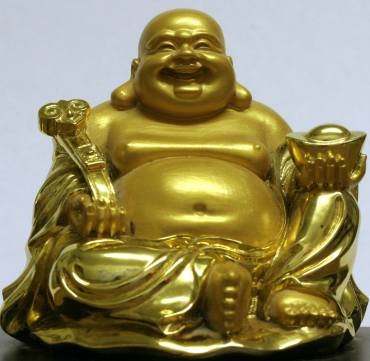
Here's how you can find out
Gold evokes mixed reactions in investors. The world's most famous investors -- Warren Buffett and Charlie Munger, are not gold fans.
In an interview on CNBC's Squawkbox, Munger once stated that "Gold is a great thing to sew into your garments if you are a Jewish family in Vienna in 1939. Civilised people don't buy gold. They invest in productive businesses."
In a 2012 interview, Buffett explained his anti-gold stance: "When we took over Berkshire, it was selling at $15 a share and gold was selling at $20 an ounce. Gold is now $1,600 and Berkshire is $120,000.
If you buy an ounce (28.3495 grams) of gold today and you hold it for a hundred years, you can go to it every day and you could coo to it and fondle it and a hundred years from now, you'll have one ounce of gold and it won't have done anything for you in between. You buy 100 acres of farm land and it will produce for you every year. You can buy more farmland and all kinds of things, and you still have 100 acres of farmland at the end of 100 years.
"You could buy the Dow Jones Industrial Average for 66 at the start of 1900. Gold was then $20 an ounce. At the end of the century, the Dow Jones was 11,400, and you would also have gotten dividends for a hundred years. So a decent productive asset will kill an unproductive asset."
When comparing holding gold to stocks such as Coca-Cola and Wells Fargo, Buffett once commented that "it's a lot better to have a goose that keeps laying eggs than a goose that just sits there and eats insurance and storage and a few things like that."
The argument in favour of gold is that it proves to be a safe haven. When everything else tumbles, gold is a refuge. Unfortunately, those who thought that gold would rally post the global market turmoil were in for a surprise. Bloomberg reported that instead of a rally, futures in New York fell for four straight sessions even as global equities plunged to a two-year low. Rather than providing a refuge from the meltdown, gold's volatility rose right along with a measure of equity turbulence, diminishing its appeal as a haven.
Ben Johnson, director of passive funds research at Morningstar, shared his views on Morningstar's UK website.
Gold is traditionally sought after as a store of value in times of severe economic dislocation, an insurance policy against financial Armageddon. Most notably, gold has in the past proven a useful hedge against inflation. Its value as an inflation hedge and its low-to-negative correlations with most broad asset classes can make gold a worthwhile investment for a small portion of an investor's portfolio.
As for an investment in physical gold through an exchange traded product (ETP), we think that gold ETPs are easily some of the least costly and most liquid ways to achieve one's gilded aspirations that exist.
How can one value something that's worth nothing?
Gold has no intrinsic value. The yellow metal does not produce earnings or cash flows that it can share with investors, like equities. Nor does it throw off fixed or floating coupon payments, as a bond does. Financial theory tells us that a security's intrinsic worth is equivalent to the present value of the future cash flows it will generate. With no cash flows to project and discount back to today, at the end of the day gold is a purely speculative instrument: it is only worth what someone else is willing to pay for it.
The speculative nature of an investment in gold doesn't differentiate it from other commodities like oil or wheat, which, like gold, have no intrinsic worth.
What makes gold different from most commodities is that it has little practical use. Gold cannot fuel a car or provide nourishment.
According to the World Gold Council, only around 10 per cent of current gold demand comes in the form of practical uses -- such as in dentistry and electronics. The majority of gold demand, around 49 per cent, comes from the jewellery industry, with India and China being the most notable drivers of incremental consumption in recent years. Meanwhile, the remainder of the global appetite for the yellow metal comes from investors.
Investment demand for gold has surged in recent years as concerns over paper currencies have flared and the world's most precious metal has been made increasingly accessible to the masses, thanks to a handful of industrious ETP providers. Gold is now more accessible than ever -- when else in history has gold been sold from vending machines?
Whether the price of gold will soon tumble or spiral higher is nearly impossible to tell. What we can say for certain is that the ETFs, backed by physical gold, are an excellent way to gain exposure to the yellow metal for investors and speculators alike.
The vast majority of bullion-tracking ETF assets can be found in products that invest directly in physical gold, and will track movements in the spot price of the yellow metal, minus fees. Most are benchmarked to the London Gold Fixing. The London Gold Fixing takes place twice each business day at 10:30am and 3pm. The fixing process determines the settlement price for contracts arranged amongst the members of the London Bullion Market. This price -- which is expressed in terms of US dollars per troy ounce (31.1034768 grams) -- is in turn used as a benchmark for the vast majority of the gold products and gold-related derivatives around the globe.
Photograph: David Jones/Creative Commons










